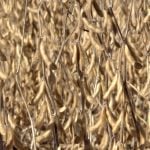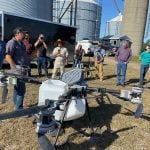University of Guelph dry bean researcher Dr. Mohsen Yoosefzadeh Najafabadi champions sustainability by donating surplus breeding program beans to support food security and community art initiatives.
1.

University of Guelph breeding program transforms surplus research beans from waste into resources

A successful 2026 crop requires an understanding on how to tailor fertilizer plans to specific field conditions



Brazil dominates China’s soybean imports with 85.2 per cent share


Managing SCN-infested soils comes down to selecting resistant varieties, crop rotation and supplementing with chemical seed treatments



The first of a three-year project has found more biomass from earlier drone broadcasting of seed